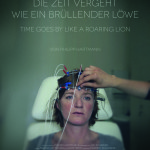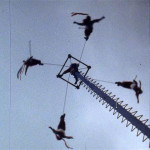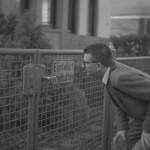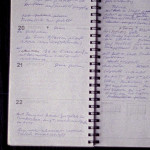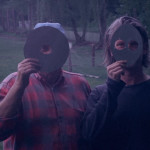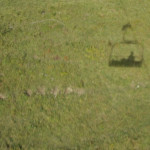…
Philipp Hartmann’s film Time Goes by Like a Roaring Lion (Die Zeit Vergeht wie ein Brüllender Löwe), named for a curious turn of phrase used by the filmmaker’s grandmother, grasps for the more intangible phenomenon of temporality itself. Compendious, deadpan, and unabashedly personal, the film concerns a 38 and a-quarter year-old filmmaker in the middle of his life expectancy, whose fear of passing time leads him on a transcontinental investigation. The blindingly white Bolivian salt flats, the atomic clock in Braunschweig, the hourglass collection of the widow of a clockmaker in Buenos Aires, a train graveyard in the Andes (where, according to some graffiti, “the only thing that happens here is time”): Hartmann’s film explores memory and time’s many facets in ways both topical (concerns about child development and the diagnosis of Alzheimer’s disease) and formal (cinema’s function of marking time through objects and motion). Most of all, Hartmann’s film makes the abstract intimate—through conversations with friends, his mother’s diary entries, and a dream about his father, and through an unflinching process of self-documentation, family photos, and the slow accumulation of little objects on his desk. And the film itself functions as just such an accumulation of styles, narratives, and insights, following philosophical tangents, playing games of perspective, and dipping into fictional episodes and witty reconstructions.
…
Leo Goldsmith in: „RECORDS, REMNANTS, AND RUINS – Highlights from Doclisboa 2013“ in The Brooklyn Rail.
http://www.brooklynrail.org/2013/12/film/records-remnants-and-ruins-highlights-from-doclisboa-2013
